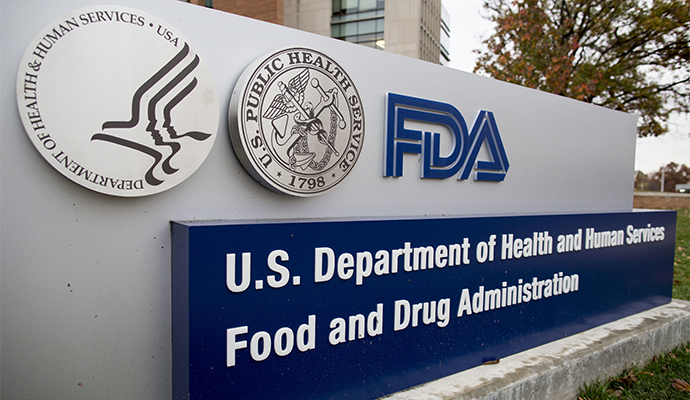FDA Expands Remdesivir Use to All Hospitalized COVID-19 Patients
The agency expanded a previous emergency use authorization to allow for the use of remdesivir in all hospitalized COVID-19 patients, not just the severely ill.

Source: FDA Official
- FDA recently broadened an emergency use authorization for remdesivir to include all hospitalized adult and pediatric patients with COVID-19.
For more coronavirus updates, visit our resource page, updated twice daily by Xtelligent Healthcare Media.
The decision to expand the use of remdesivir stemmed from the agency’s ongoing review of the May emergency use authorization of the drug, which showed that it may be effective for the treatment of suspected or laboratory-confirmed COVID-19 in severely ill patients.
The agency recently concluded that the known and potential benefits of remdesivir outweigh the known and potential risks.
“The FDA continues to make safe and potentially helpful treatments for COVID-19 available as quickly as possible in order to help patients. The data to support today’s action are encouraging,” FDA Commissioner Stephen M. Hahn, MD, said in the announcement.
“The data show that this treatment has the potential to help even more hospitalized patients who are suffering from the effects of this devastating virus. We are working with drug developers to conduct randomized clinical trials to further study the safety and effectiveness of a number of potential therapies for COVID-19.”
Under the law, FDA has the ability to revise an emergency use authorization as appropriate, based on public health considerations, including new data.
Specifically, a recent analysis of data from two randomized, controlled clinical trials, informed the agency’s decision earlier this week.
Remdesivir is an investigational broad-spectrum antiviral treatment that was developed by Gilead Sciences Inc. to treat Ebola back in 2013.
The first randomized clinical trial of remdesivir for COVID-19 took place at the end of February and was conducted by the National Institute of Health (NIH).
The first US trial participant was an American who volunteered after being quarantined on the cruise ship that docked in Yokohama, Japan in early February.
The trial found that the median time to recovery from COVID-19 was 10 days for the remdesivir group compared to 15 days for the placebo group. And the odds of clinical improvement at Day 15 were also significantly higher in the remdesivir group when compared to the placebo group.
In hospitalized patients with mild to moderate disease, the results for time to recovery at Day 15 numerically favored the remdesivir group and were consistent with the overall study results, researchers explained.
The study was able to be adapted to evaluate additional investigative treatments and researchers hope to eventually enroll participants at other sites in the US and worldwide.
A separate April study, published in the New England Journal of Medicine, found that 68 percent of COVID-19 patients who received remdesivir showed clinical improvement.
Fifty-seven of these patients were receiving ventilation and eight percent received extracorporeal membrane oxygenation.
Twenty-five patients were discharged, while seven patients died. Mortality was 18 percent among patients receiving invasive ventilation and five percent among those not receiving invasive ventilation.
Two months later, Gilead announced positive results from its Phase 3 SIMPLE clinical trial evaluating remdesivir.
The study included hospitalized patients with confirmed COVID-19 pneumonia without reduced oxygen levels.
Researchers found that patients in the five-day remdesivir treatment group were 65 percent more likely to see clinical improvement at day 11 versus individuals receiving standard care.
And although those in the ten-day treatment group saw positive results, they did not reach statistical significance.
But most recently, remdesivir showed very little benefit on clinical status for moderately ill COVID-19 patients, a JAMA Network Open study found.
Specifically, the coronavirus patients in a 10-day course of remdesivir did not have a statistically significant difference in clinical status compared with standard care at 11 days after initiation of treatment.
Researchers found that the median length of treatment was five days for patients in the 5-day remdesivir group and six days for patients in the 10-day remdesivir group.
By Day 28, nine patients died in the 5-day remdesivir group, three in the 10-day remdesivir group, and four in the standard care group.
Experts highlighted that despite multiple trials, the question still remains as to how effective remdesivir is for different types of COVID-19 patients.
